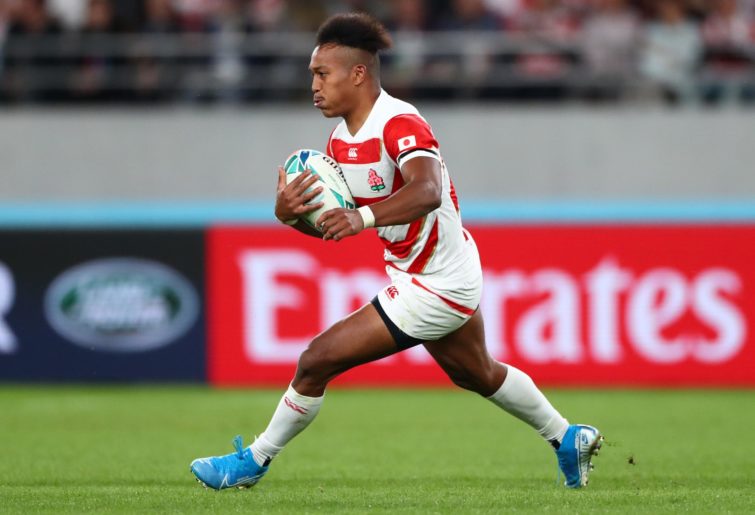Before Argentina’s first-ever victory over the All Blacks, a lot of people already knew that Argentine captain Pablo Matera was a baller.
But now, after a history-making performance, the rest of the world is aware of his abilities.
In the early exchanges, he would not take a step backwards, even against a more highly-favoured opposition. After being pulled up by referee Angus Gardner for his involvement in a bit of push and shove, Matera replied with “I’m playing for my country.”
Now, there’s a quote that grabbed the rugby world’s imagination and went on to inspire Los Pumas to pull off a colossal upset.
A week on, when many had predicted Argentina to slip against the Wallabies with references to ‘not being able to climb Everest twice’, again Matera and his men fought valiantly to snatch what seemed an unlikely draw. But, should we be surprised?
Argentina has now had success against all Rugby Championship sides since joining in 2012. Granted, it hasn’t all been easy, with the ups and downs of test match rugby. However, it does go to show that regular competition clearly has its benefits.
Argentina first played against the All Blacks in 1985 and up until and including 2011, they had only met on 14 occasions – two of which were part of Rugby World Cup tournaments.
Since their inclusion in the SANZAAR alliance, they’ve clashed 17 times – once at a Rugby World Cup. That’s basically two times per year compared to just over half a game per year prior to 2012.
In that time Argentina has had a few hidings here and there, but all southern hemisphere teams have come to respect them as a competitive opponent – and rightly so.
With the COVID pandemic and Super Rugby’s demise having thrown the game into disarray, Argentina has still managed to reap some rewards of consistent competition at test and club level. For it was only 2019 when the Jaguares side lost to the Crusaders in the Super Rugby grand final and their prospects seemed to really be on the up.
Then, of course, 2020 came along and completely flipped the script.
But it’s clear that with regular top-level competition, the right structures, coaching and players, Los Pumas have shown that there is great potential to shake up the world order.
I mean let’s be real – in over nine Rugby World Cups, only four different nations have won the title and even looking at the 2019 World Cup – how many serious contenders were there? Five? Maybe six, tops?
That’s the challenge for World Rugby to grow our game.
If there’s currently five teams in the hunt – why not aim for eight by the next World Cup? The seeds are there. Japan just rode a wave of momentum as Rugby World Cup 2019 hosts and have a club infrastructure that is ever strengthening.

Kotaro Matsushima. (Photo by Stu Forster/Getty Images)
France are the next hosts and are looking to have honed their under-20 World Cup-winning squad to graduate to the big leagues. While Fiji have a stack of talent and with the introduction of a Fijian side in the latest incarnation of Super Rugby from 2022, there is a huge opportunity for these sides to disrupt the balance of power in international rugby.
Including Japan and Fiji in the Autumn Nations Cup was a shrewd idea and despite COVID complications, is exactly the sort of regular competition and exposure these sides need to transform into legit contenders.
That’s not to mention a couple of sleeping giants in the Pacific – with Tonga and Samoa fighting for equal opportunities and to retain some of their top talent from a system that is seemingly working against them.
Then you’ve got a side like Georgia who is sitting on Europe’s edge trying to get a foot in the door and the USA, whose Major League Rugby will be interesting to keep an eye on in the coming years.
Now, that’s all down the line and much, much easier said than done. While I realise that World Rugby are doing a number of things with developing the game through funding and other initiatives, why not be a bit bolder with their aims?
If there are five World Cup contenders now, why not push the boat out and aim to expand it to eight by 2023 or, more likely, 2027? Then twelve by 2035.
Can you imagine a Rugby World Cup that wide open? It’d sure generate some interest – as has been shown by the sudden surge in popularity of this year’s Rugby Championship. More contenders, more excitement.
From 2012-2019, Argentina played 102 Test matches, 85 against tier-one nations and 39 of those at home. Juxtapose that with Fiji who played 52 test matches, 24 against tier-one nations and a staggering three of those at home. That’s a stark contrast in just how much these sides are playing against top teams in order to improve and eventually get results.

(Photo by Amilcar Orfali/Getty Images)
Sure, there’s more to it than that. Factoring in things like international level facilities, travel, politics and sheer economics, but when you have developing sides getting half as much playing time as top sides, how on earth are they supposed to bridge the gap?
World Rugby, and a lot of fans, may indeed favour the status quo – as has been a great theme for rugby since it’s early days – but if they’re going to really develop things, then they should be held accountable for actually doing it in a meaningful way.
Pablo Matera showed us there’s a brave new world out there. Rugby just needs to go find it.






























































































